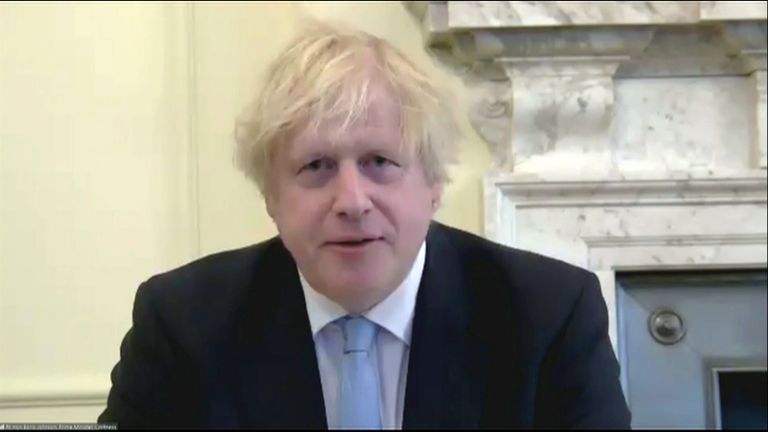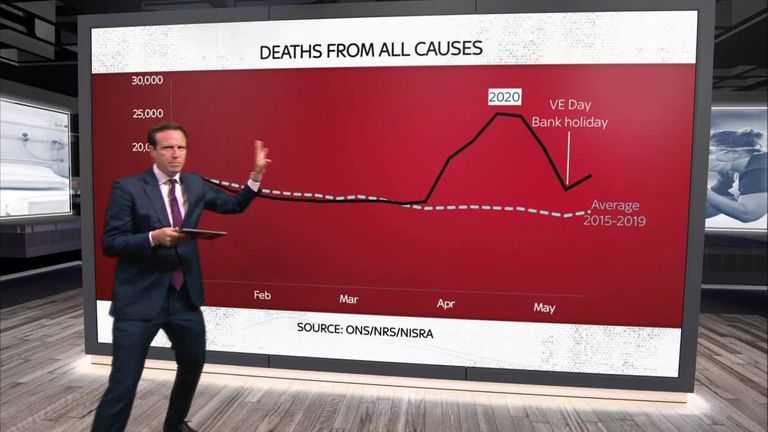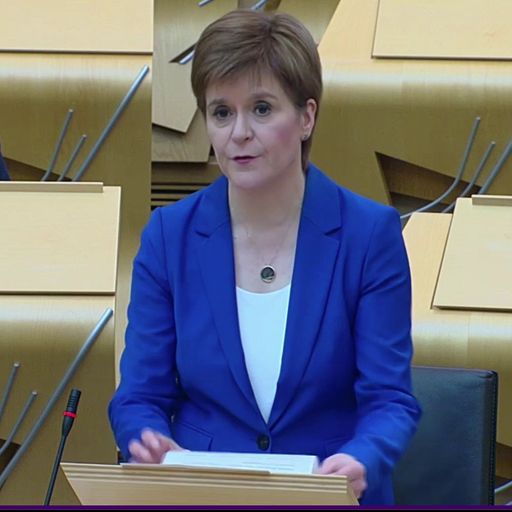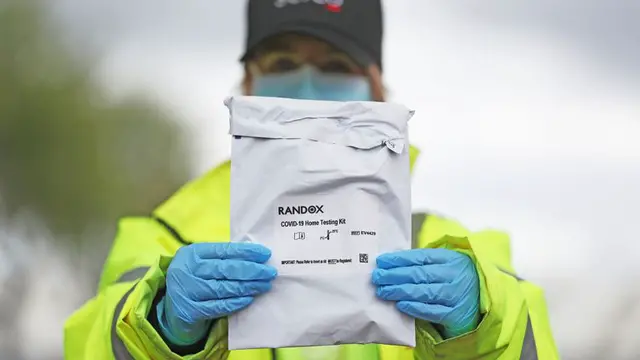The government's coronavirus test and trace system will be up and running tomorrow, Prime Minister Boris Johnson has said.
Anyone in England who has been in close contact with someone who has been infected with COVID-19 will be asked to isolate for 14 days even if they have no symptoms.
Mr Johnson acknowledged that being told to self-isolate was a "huge imposition" but people should be aware of why the programme was needed.

PM sorry for 'pain, anguish and heartbreak'
And he warned that if the initial voluntary system was not respected, fines could be introduced for people who fail to comply.
He told MPs on the liaison committee: "We will be asking people to stay at home. If they don't follow that advice, what we will be saying is we will consider what sanctions may be necessary."
Baroness Dido Harding, who is leading the scheme, said she believed it would play a crucial role in ending restrictions on movement, saying the country would "be exchanging
national lockdown
for individual isolation."
Asked whether people would comply with the measures, Baroness Harding said it "requires all of us to do our civic duty" to avoid spreading the virus.
Anyone who tests positive will be asked for details of people they have been in close contact with and places they have visited over the last seven days - either by a contact tracer or by a text or email.
Once they have given those details, either to the contact tracer or online via a website, those contacts will then be alerted by phone, text or email.
Depending on their level of risk, those contacts will be instructed to isolate for up to 14 days - anyone with symptoms should also isolate for seven days while they wait for a test result.
In order to prepare for the launch, the government has hired 25,000 contact tracers to get in touch with people who have the virus. Officials said all of them would be ready to report for duty tomorrow.
**:: Listen to the Daily podcast on **
Apple Podcasts
**, Google Podcasts
, Spotify
, Spreaker
**
Yet the scheme will not include the contact tracing app currently being tested on the Isle of Wight, which means it will not be able to identify people unknown to someone who tests positive.
Baroness Harding declined to say when the app would be ready, describing it as "the cherry on the cake rather than the cake itself" - despite first being hailed by the government as an integral part of the scheme.
Government testing chief Professor John Newton argued that "most of your contacts are known to you".
As a result, although the government guidance describes a contact as anyone who has been "within 2 metres for more than 15 minutes", in practice officials suggested it would be limited to close contacts.

UK has seen 64,000 excess deaths since March
"It's a very specific approach," said Prof Newton, who said it was designed to "prevent overreaction to the occurrence of a case and taking out whole businesses or care units."
Anyone who has travelled in the same care as someone else would be considered a contact, Prof Newton said, adding: "If you're a teacher, we wouldn't say that everyone at school is a contact."
Asked whether people would come forward for a test if they were worried about losing wages, Baroness Harding said that anyone who was told to self-isolate could claim statutory sick pay or apply for a grant through the income support scheme if they were self-employed.
Prof Newton said the government was "looking at" ways to help mitigate the effects of quarantine and that "local authorities would play a big part in that".

Coronavirus: 'Test and protect' programme in Scotland to be rolled out this week
Last week the government announced £300m funding for local authorities to support the test and trace service locally, in order to identify and contain local outbreaks in workplaces, care homes or schools.
From tomorrow, all symptomatic individuals in England will be able to access a test if they need one. All symptomatic individuals in Wales will be able to book tests from Saturday.
The symptoms currently listed by the government include a new, continuous cough, a high temperature or a change in sense of smell or taste.
Next week from Monday to Thursday, Dermot Murnaghan will be hosting After the Pandemic: Our New World - a series of special live programmes about what our world will be like once the pandemic is over.
We'll be joined by some of the biggest names from the worlds of culture, politics, economics, science and technology. And you can take part too. If you'd like to be in our virtual audience - from your own home - and put questions to the experts, email [email protected]
 简体中文
简体中文

